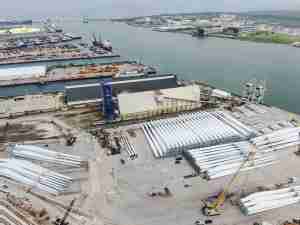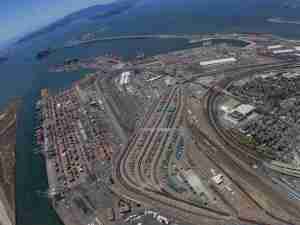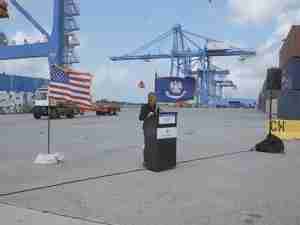Bromma has also won a new order to deliver two of its innovative STS45E spreaders to La Spezia Container Terminal in Italy. The STS45E, the industry’s first twin-lift, all-electric, separating ship-to-shore twin-lift crane spreader, is in service in every region of the world.
Bromma all-electric twin-lifts have much the same environmental and commercial advantages as Bromma single-lift spreaders, including:
- lower spreader weight, resulting in lower crane power consumption
- as much as 90% lower spreader power consumption when compared with hydraulic yard spreaders, due to the elimination of the idling hydraulic powerpack
- major reduction in service points due to the elimination of hydraulic service points
- much higher reliability and spreader uptime due to the elimination of nuisance downtime events associated with spreader hydraulics
- much lower consumable cost -- no oil, no filters, etc.
- CO2 emission reductions of more than 200 tonnes per spreader
Bromma Wins New All-Electric Orders for Spreaders to Multi-Rio and PD Ports
Single-lift all-electric yard crane spreaders also remain popular at terminals around the world. Bromma’s most recent yard all-electric orders include contracts for six YSX40E all-electric yard crane spreaders for Multi-Rio in Brasil and a contract for five second-generation YSX45E yard crane spreaders for delivery to the PD Ports terminal at the Northern Gateway project in northeast England. Bromma has delivered more than 1,700 all-electric yard spreaders to terminals around the world.
A pioneer in the global container handling industry, Bromma is celebrating its 50th year of continuous operations in 2011.











